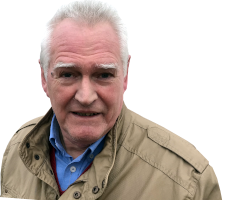search
date/time
 | Yorkshire Times A Voice of the Free Press |

Mike Tilling
Arts Correspondent
5:03 AM 26th August 2023
arts
Review
Classical Music: Krzysztof Meisinger (Guitar) – Mystique
Krzysztof Meisinger (guitar) – Mystique
Francisco Tárrega: Capricho árabe; Isaac FAlb Malagueña, Op. 165 No. 3; Prélude (‘Asturias’), Op. 232 No. 1; Federico Mompou: Suite compostelana; Carlo Domeniconi: Variationen über ein anatolisches Volkslied, Op. 15; Koyunbaba, Op. 19.
Chandos CHAN 20278
https://www.chandos.net/home
Francisco Tárrega: Capricho árabe; Isaac FAlb Malagueña, Op. 165 No. 3; Prélude (‘Asturias’), Op. 232 No. 1; Federico Mompou: Suite compostelana; Carlo Domeniconi: Variationen über ein anatolisches Volkslied, Op. 15; Koyunbaba, Op. 19.
Chandos CHAN 20278
https://www.chandos.net/home

I hear the teeth of purists grinding at such an approach (‘he is using music like wallpaper’), but it is the only way into an unfamiliar piece for me. And I have to admit, with this collection, the failure is mine since I have never heard of Domeniconi or Mompou. Perhaps a shake of the head for the purist rather than the gnashing of teeth is more appropriate. I really need my three-step approach for this CD with 23 sections. I could not hope to manage such diversity, no matter how beguiling the music might be (and it is).
Born in 1984, Meisinger is Polish and has played around the world with some of the most famous orchestras. Here, he plays solo with an album entitled Mystique, not an easy word to define given its associations with the supernatural, the hidden, and the inexplicable. Also, there are associations with the ’mysterious’ East. Titles like Capricho árabe, ; Variationen über ein anatolisches Volkslied, and Koyunbaba, give it away. There is clearly an internationalist theme here.
It seems paradoxical that many of the pieces feel leisurely and rather cool. ‘Paradoxical’ because, of course, the composers come from hot countries, as do the themes of each piece. Or perhaps not so strange: if you live somewhere hot, you need relaxation and an escape from the heat. This is not to suggest that all pieces are tranquil; some are fiery and played with great dexterity and at high speed. The overall feel, however, is one of calm reflection.
The first piece is Capricho árabe, by Tárrega, the man who revived the classical guitar in the late nineteenth century. Some critics assert that this is his most popular piece. Surely that would be his Recuerdos de la Alhambra? As Meisinger plays, it is the spaces between notes that emphasise the cool introspection.
Koyunbaba,, on the other hand, has a fiery presto movement that feels more in keeping with the Spanish guitar tradition. Domeniconi is Italian, studied in Berlin, and taught in Turkey. His compositions make use of a wide range of cultural influences. The title of this piece may be translated as ‘shepherd, but it has other associations with a town in Turkey and a thirteenth-century mystic.
Albéniz is represented by his Malaguena and the ever-popular Asturias. This, perhaps, is the most Spanish feeling of the album.
The Mompou Suite compostelana evokes the city that punctuates the famous pilgrimage. Mompou was well placed to represent the city, having lived and worked there for fourteen years.
Mystique is beautifully played music that is complemented by a first-rate recording. There is familiar music here and much that is new.